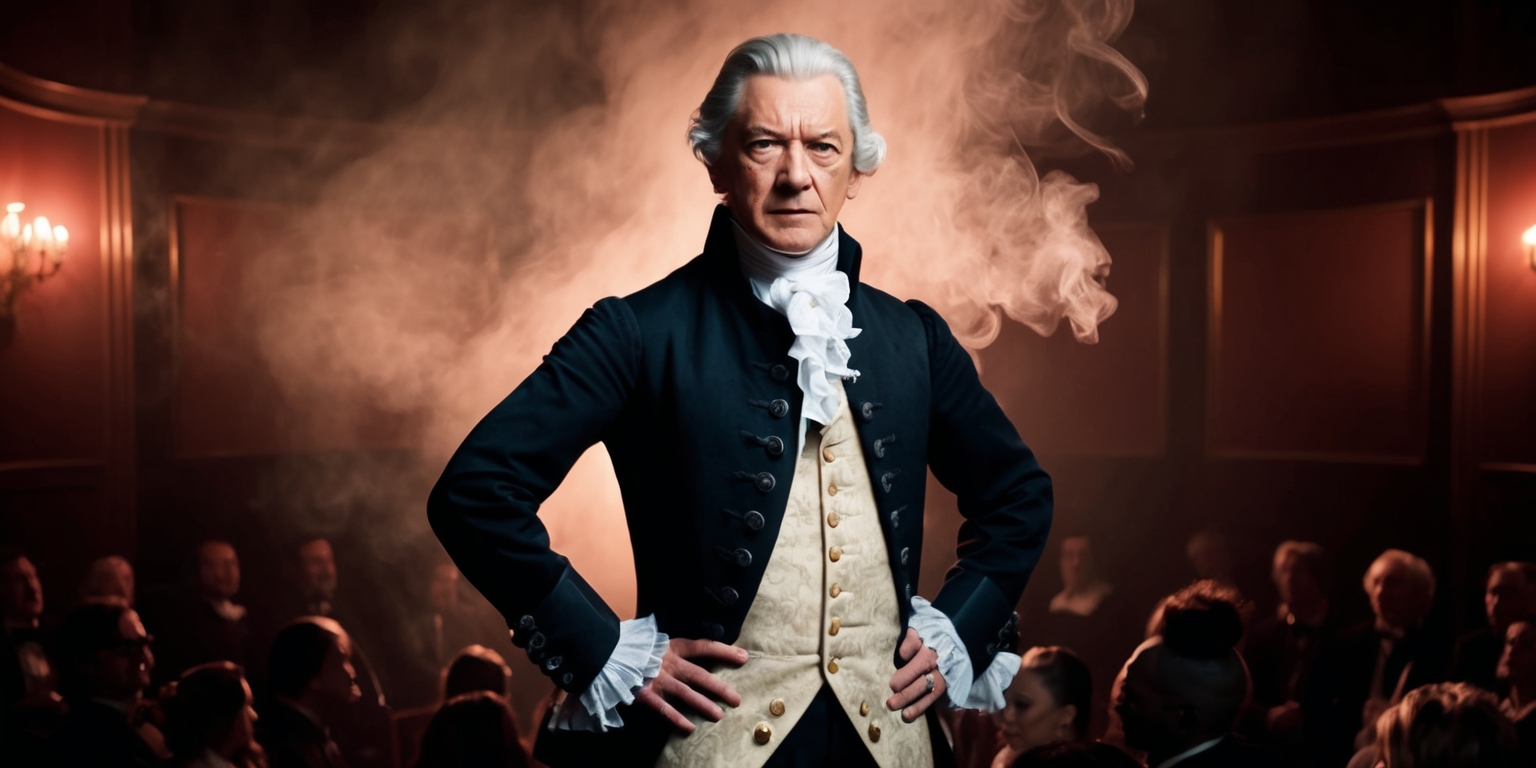The Duality of Art: A Deep Dive into Ian McKellen's Performance in "The Critic"
- Dec 06, 2024
- 0

In an age where cinema thrives on dazzling spectacles, the potency of character-driven narratives often finds itself overshadowed. One such film, "The Critic," seeks to blend both elements, centering around an iconic performance from the renowned Ian McKellen. Set against the rich backdrop of 1930s London, this film has garnered attention not solely for its plot but for how it leverages McKellen's impressive range. While his portrayal captivates, the overarching narrative leaves much to be desired, leading to mixed reviews. Dive into a closer examination of "The Critic" as we explore its intricacies and unravel its merits and missteps, illuminated by McKellen's undoubted brilliance.
The Historical Context
Set in the cultural tapestry of 1934 London, "The Critic" emerges at a time of societal upheaval. As Britain navigated the complexities of class, sexuality, and artistic expression, the film captures this era where theater critics wielded significant influence over public perception and artistic careers. Understanding this backdrop enriches the narrative and underscores the stakes faced by McKellen’s character.
Introducing Jimmy Erskine
McKellen portrays Jimmy Erskine, a theater critic whose presence looms large over the London theater scene. He embodies a man at the pinnacle of his career, exuding confidence and an acute awareness of his authority. However, beneath this veneer lies a deeper struggle with the rapid changes in a profession he has mastered.
A Shift in Power Dynamics
The narrative hinges on the arrival of David Brooke, the new owner played by Mark Strong. Brooke’s ambitions threaten to unsettle the delicate power balance, presenting a formidable challenge to Erskine’s established authority. This shift invokes an immediate sense of vulnerability within Erskine, setting the stage for deceitful alliances and ulterior motives.
The Complicated Bargain

In a bid to retain his influential position, Erskine initiates an agreement with Nina Land, portrayed by Gemma Arterton. This arrangement reveals the intricate layers of compromise and desperation that characterize the theater world. Through flattering reviews, Erskine hopes to bolster Nina’s career while simultaneously ensuring his own relevance.
The Weight of Identity
One of the poignant themes explored in "The Critic" is Erskine's struggle with his identity as an openly gay individual in an oppressive culture. The film delicately examines the pressures and vulnerabilities placed on individuals who challenge societal norms, lending depth to Erskine’s internal conflicts.
The Performance of a Lifetime
It's impossible to discuss "The Critic" without acknowledging McKellen’s performance. He channelizes a spectrum of emotions, expertly blending wit, vulnerability, and a simmering indignation. Few can match his ability to bring a character to life with such nuance and authenticity, embodying both the nobility of his role and the complexities of a man grappling with change.
The Supporting Cast
While McKellen shines, the supporting actors, including Arterton and Strong, do not quite reach the heights necessary to balance this star power. Arterton’s portrayal, while competent, feels underwritten, leaving her character lacking complexity. Strong, similarly, captures moments of uncertainty but ultimately doesn't elevate the material to match McKellen’s brilliance.
Missed Opportunities
Another notable presence, Leslie Manville, feels underutilized in the narrative. Her talents hint at untapped potential, yet they remain unexplored. This underdeveloped utilization of strong actors robs the film of emotional resonance that could have emphasized its themes.
The Role of Alfred Enoch
Despite its shortcomings, the film features Alfred Enoch, who, albeit in limited capacity, delivers a noteworthy performance. His character offers a refreshing entry into the narrative, hinting at a more profound story that could flourish with further development.
Directorial Choices
Directed by Anand Tucker, the film teeters between genres, aiming to encapsulate both drama and thriller elements. However, it struggles to genuinely engage with its thriller aspects, often feeling derivative of recent films that tread similar themes. While there are moments where Tucker's direction excels—such as creative camera angles—these do not significantly elevate the narrative.
Visual Storytelling
The cinematography showcases distinct visuals, with refreshing compositions that provide some moments of intrigue. However, the visual splendor cannot compensate for the narrative's inadequacies, suggesting a disconnect between form and content.
The Soundtrack
The film's score complements the narrative, enhancing emotional undertones and periods of tension. Through gripping melodies, the audience experiences a sense of nostalgia intertwined with the urgency of Erskine’s predicament, enriching the overall atmosphere of the film.
<h2>Thematic ResonanceThe themes of ambition, identity, and ethical dilemmas permeate "The Critic." It invites viewers to navigate the murky waters of authenticity and sacrifice while placing a spotlight on the cost of artistic integrity in a complex world.
Audience Reception
While McKellen’s performance is universally praised, audience reactions to "The Critic" are mixed. Those who appreciate character-driven narratives may find solace in the film’s exploration of existential themes, yet many may walk away craving a more robust plot.
Final Thoughts
Ultimately, "The Critic" serves as a testament to Ian McKellen’s unrivaled talent. While his portrayal keeps the audience engaged, the film as a whole struggles to match his exceptional performance. It stands as a mixed bag, likely appealing to fans of character studies and dramatic interpretations of human experience—though those seeking a tightly woven plot may find disappointment. Despite its flaws, McKellen’s artistry ensures that "The Critic" remains an interesting entry in the cinematic landscape.
Arriving in theaters on September 13, 2024, "The Critic" promises to draw in audiences with its intricate dance of theatricality and tension, ensuring that though it might not be revolutionary, it is undoubtedly memorable.